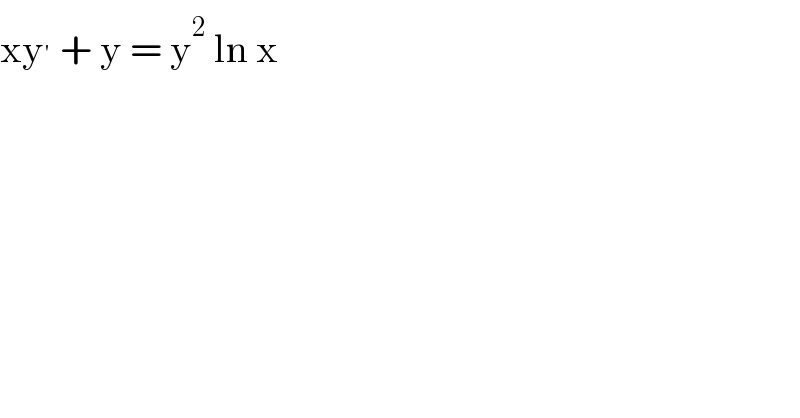
Question and Answers Forum
Question Number 157457 by MathSh last updated on 23/Oct/21

Answered by ajfour last updated on 23/Oct/21

Commented by MathSh last updated on 23/Oct/21

Answered by mnjuly1970 last updated on 23/Oct/21
![y′+(y/x)= (y^( 2) /x) ln(x) y^(−1) =u ⇒ −y^( −2) y′=u′ −y^( −2) y′ −y^(−1) (1/x) = −(1/x) ln(x) u′ −(u/(x )) = −((ln(x))/x) u= e^( ∫(1/x) dx) ( ∫−((ln(x))/x) e^( −∫(1/x)dx) dx +C) = x ( ∫−((ln(x))/x^( 2) )dx +C) = x [ ((ln( x ))/x) − ∫(1/x^( 2) ) dx +C ] = ln(x) +1 + C x y = (1/(ln(x)+1+Cx))](Q157482.png)
Commented by MathSh last updated on 23/Oct/21

Commented by mnjuly1970 last updated on 23/Oct/21

Answered by CAIMAN last updated on 23/Oct/21

Commented by MathSh last updated on 23/Oct/21

